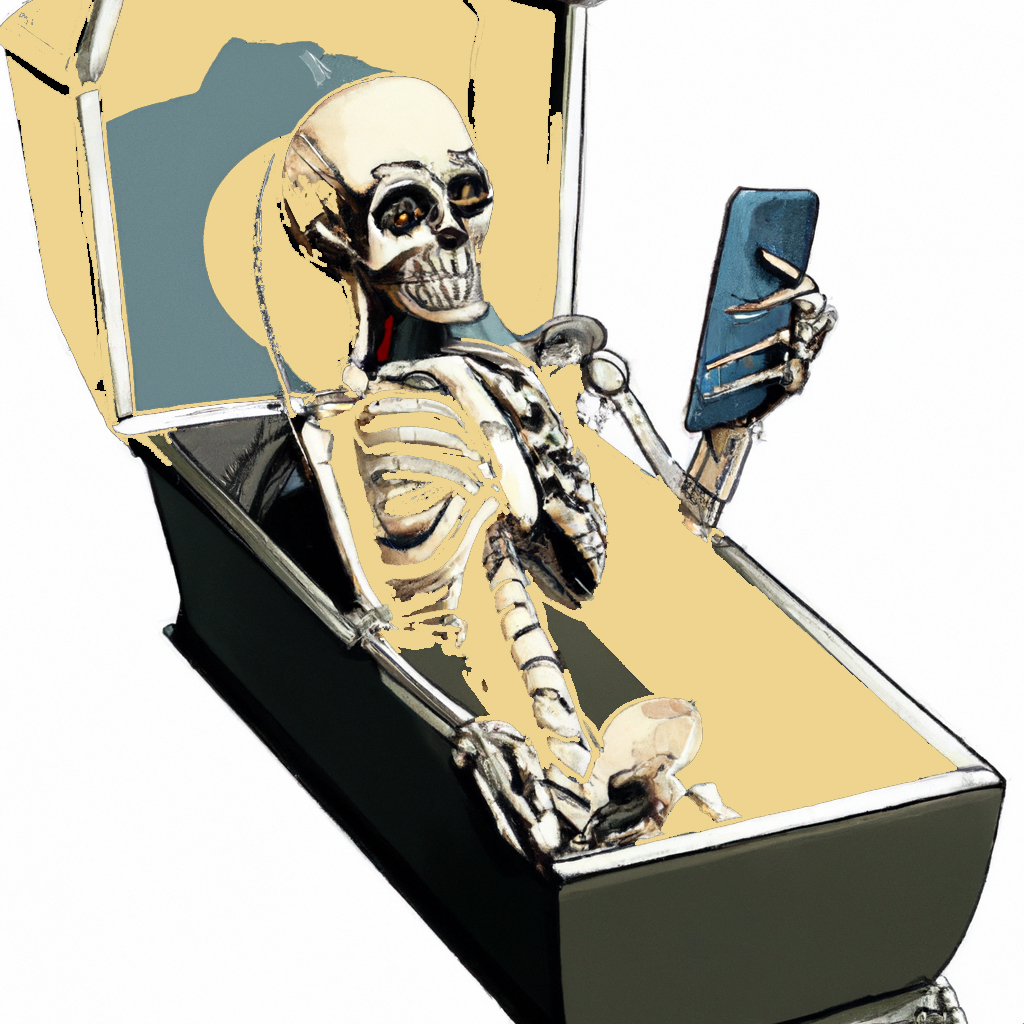Blog
Agent!
As we age, we value the importance of time.
In the back nine of my life, I spend more time in queues with customer service reps than at any other time. The wait is never five minutes. Sometimes it’s five hours with cringingly disharmonious music blasting while one phone representative passes you to a series of reps, spending the day surfing labyrinths of queues.
Before digital platforms, if you had a problem, you called customer service and hashed it out. Now you have a bot that wants to engage with you as you repeatedly scream into your phone, “Agent!” until it finally replies, “Let me connect you.”
In the olden days calling, while attached to a landline, someone picked up immediately. The person at the other end would guide you, thank you for being a customer, and was courteous—no more. Many organizations state that rude behaviour will not be tolerated, but they dish it out, and you can’t say a thing. I’m aware that the public can be demanding, but kindness cuts through stupidity, impatience, and resistance, not to mention bad manners like butter.
It would help if you were mentally neutral and balanced before engaging in one of these calls, as they’re taxing, and you might require a prescription for Xanax right after. The bots pretend to guide you to someone, only to pick up and disconnect you within seconds after you’ve been waiting for an hour. This is when the Xanax comes in so you can try again without pulling your hair out. It’s a gruelling exercise for one’s mental health. In some queues, there’s the opportunity for you to leave your number and have a callback. I received a callback only once.
Curiously, your call is immediately picked up if you want to become a new customer. But if you’ve been a long-standing client responsible for the company’s profits and success, you are invisible and treated as such. The cellular companies whose business is communication don’t know how to communicate effectively. The companies that deal with home security are robbed of direction, and utility companies are more cold than hot when dealing effectively with customers who have waited for long periods of time. Welcome to the modern world.
Add to those techs that show up at your home with the “I’ll be there between 11 and 4 nonsense.” Only to show up later than they’re supposed to, unable to service whatever needs repair because they don’t have the part. How convenient, now another service call has to be placed. The second person, who needs only snap something in place, tinkers and wastes time busy on their cell phones texting, gambling or on Tinder. What do I know, except they’re masterful at ensuring that the entire hour and five minutes of the following passes, so it’s now a two-hour service call plus HST and travel time.
Companies should be interested in addressing their customer’s concerns promptly, efficiently and respectfully to prevent a situation from escalating and learning from the issue. Such is not the case. Today’s customer service is no different from a chef forgetting to season their dish, blind to a fundamental recipe component. Customer service is that necessary ingredient in the recipe for business success. Refraining from prioritizing it is no different from a chef serving bland food—a formula for disaster. The customer can see it. Why can’t the companies?
It’s likely because companies focus on profit and misguided priorities. Before technology, there were referrals. Do a great job, and everyone knew. Word of mouth still travels like fire. Who doesn’t want to hear firsthand about something great? Customers are a business’s lifeblood, and a firm’s bottom line improves when they’re satisfied.
Customer service should be like an episode of Black Mirror where companies are rated no different from Uber drivers. Lousy service means a low ranking which affects the companies standing with collateral services like banking and becoming ineligible for lines of credit or a low-interest rate, unlike a company offering excellent customer service and can access all kinds of incentives. Excellent customer service sets a company apart from its competitors through solid customer relationships. Loyalty is easy to achieve. It’s simply caring. Some large companies get that, but it’s minuscule compared to those who don’t.
I can understand going ballistic without a resolution in a timely and respectful manner. I’ve been there. It’s not hard to remedy a situation, but they make it impossible. It’s the company’s job to find the solution. Women our age grew up only knowing excellent customer service; anything less is foreign to them. With automated technology, some firms have shifted their focus away from providing personalized and attentive customer service. To quote Vivian from Pretty Woman, “Big mistake, Big! Huge!” With long wait times and unresponsive customer service reps, the company speaks and operates differently, rendering the customer impotent.
The chances are that we could die on hold before an issue is addressed. As you gasp your final breath, you hear a faint voice on the other end saying, “Hello? Is anyone there?” followed by a click because they hung up. You have to reincarnate to continue the call.
I do wonder what the future holds. Will chatbots become sentient and demand their own customer service representatives? Will companies start to offer rewards for customers who can successfully navigate their complex phone system and reach a representative? Then there’s the reps at the other end of the phone. Generally speaking, some are lovely, but others can’t hide their loud and clear disdain. Receiving calls as a customer service agent is frustrating, but how is that my fault? I am particularly riled by those who put you on hold for so long that you can’t help but wonder if they forgot about you or are on hold with some other customer service desk doing the same thing to them. Then there are those offering irrelevant solutions that have nothing to do with your problem, as though they’re still speaking to the person before you.
You can engage in other activities while on hold, like starting and completing a novel, planning a wedding for 500, including selecting the menu and perfect floral arrangements or learning Mandarin or Portuguese. With so much technology, how did customers get left in the dust?
Companies struggle with delivering decent customer service primarily because of their over-reliance on automation. Though it reduces costs, it isolates those responsible for their financial success. And leads to frustration and confusion for customers requiring help they need and deserve.
Another issue is the lack of investment in customer service. I am not seeing it as a priority. Insufficient training leads customer inquiries to mistakes, misunderstandings and unsatisfied customers. The complexity of modern technology with software platforms or online systems can be complex and challenging to navigate. The result is customers consistently experiencing technical issues.
And we least not forget poor communication channels so customers can’t reach them. Instead, you have to speak to a bot hole. Why not offer various ways of reaching out while streamlining processes, improving efficiency, and providing resources and training for customer service reps so their scope is immense from which to offer a resolution? Calling off-peak times doesn’t matter, either. They’re still busy, only with fewer people working.
Customer service has become archaic and a time-consuming albatross where companies devote little attention to outdated legacy systems not optimized for the digital age leading to slow and inefficient replies and delays and inefficiencies for customers. There needs to be more integration between systems. Complex customer issues require more expertise and time to resolve; no one can adequately address those calls. Limited resources are another issue that needs to be improved in handling a large volume of customer inquiries. As with many companies, there needs to be more training, around complex technical issues and language barriers, with employees needing help comprehending customers and vice versa. Understanding each other is critical. High call volumes lead to longer wait times and rushed conversations with a rep.
Many customers feel frustrated when forced to communicate outside the phone when explaining a complicated problem. Email and live chat though favoured by companies, can be ineffective communication channels concerning complex matters. And there’s no denying that their loopy phone message repeating 200 times that your call matters resonates for an instant, then you snap out of your daze and realize it is instilling a false sense of caring that is so transparent you try not to slam and shatter your phone. As for the annoying elevator music, I believe it is consciously designed so you’ll hang up, and they won’t have to deal with you.
At our age, putting us on hold indefinitely makes us forget why we called in the first place, and perhaps that’s the grand master plan.

